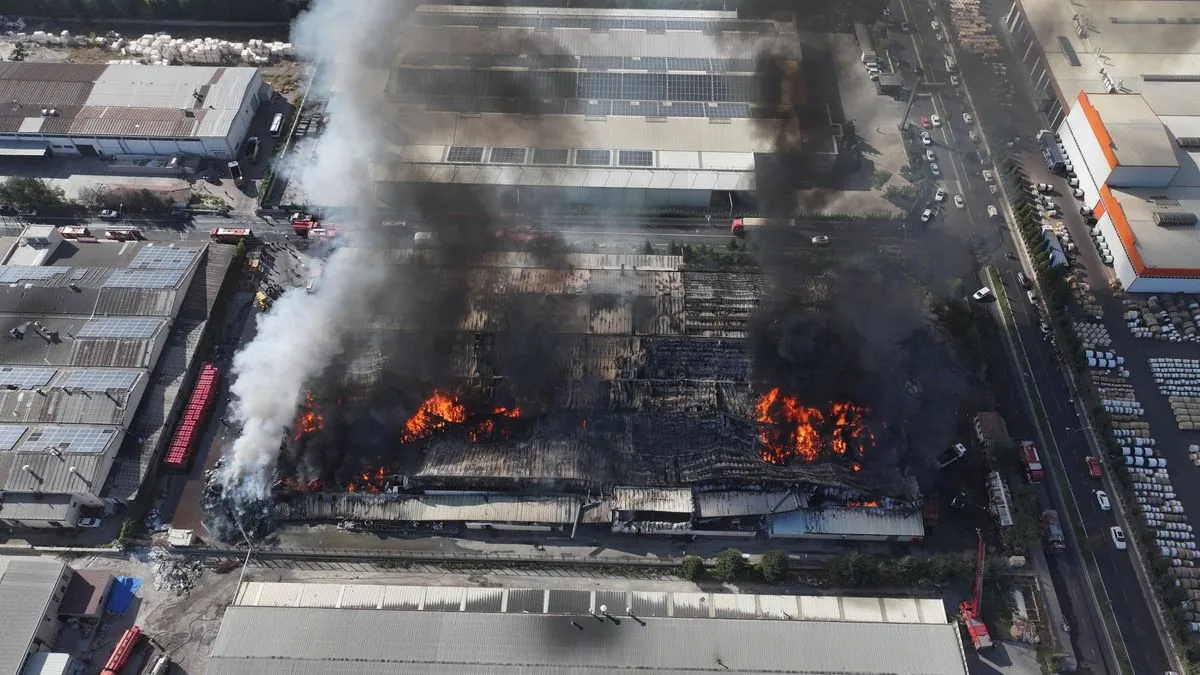A significant fire at a recycling facility in western Wisconsin has been successfully extinguished after an extensive 20-hour operation. The incident occurred at Omaha Track, located in Campbell, a town situated on French Island near La Crosse.
The blaze began at approximately 1:30 AM on October 1, 2024, and was finally brought under control around 11:00 PM the same day. The facility, which processes railway ties and other materials into biofuel chips, saw a substantial portion of its inventory consumed by the flames.
Campbell Fire Chief Nate Melby reported that the fire affected an area equivalent to four football fields of railway ties and a 30-foot (9.14-meter) high mound of wood chips. Despite the scale of the incident, no injuries were reported, and local residents were not required to evacuate or shelter in place.
The successful containment of the fire was attributed to the collaborative efforts of multiple fire departments. Chief Melby noted that favorable wind conditions played a crucial role, with northerly winds directing most of the smoke away from residential areas.
"It was a very large fire with a lot of fuel. The positive aspect is we were able to manage it with other agencies and nobody got hurt."
This incident highlights the importance of mutual aid agreements between fire departments, which are crucial for managing large-scale emergencies. The Incident Command System (ICS) likely played a vital role in coordinating the multi-agency response.
The cause of the fire remains under investigation. Authorities will likely employ various fire investigation techniques to determine the origin and cause of the blaze. This process is essential for preventing similar incidents in the future and ensuring the safety of industrial facilities.
Interestingly, this is not the first fire at the Omaha Track facility. A similar incident occurred in 2015 when a woodchipper ignited, releasing toxins into the air and prompting residents to shelter in place. This history underscores the importance of robust safety measures and emergency response plans in industrial settings.
The recycling industry, which has grown significantly in recent decades due to increased environmental awareness, plays a crucial role in waste management and resource conservation. However, incidents like this highlight the potential risks associated with processing and storing large quantities of combustible materials.
As the community recovers from this event, environmental monitoring will likely be conducted to assess any potential impacts on air quality. The U.S. Environmental Protection Agency (EPA) sets standards for air quality, which are particularly important to monitor following large industrial fires.
This incident serves as a reminder of the challenges faced by firefighters when dealing with industrial blazes, which often involve unique hazards and require specialized tactics. It also emphasizes the importance of ongoing safety improvements and regulatory oversight in the recycling and waste management industries.
